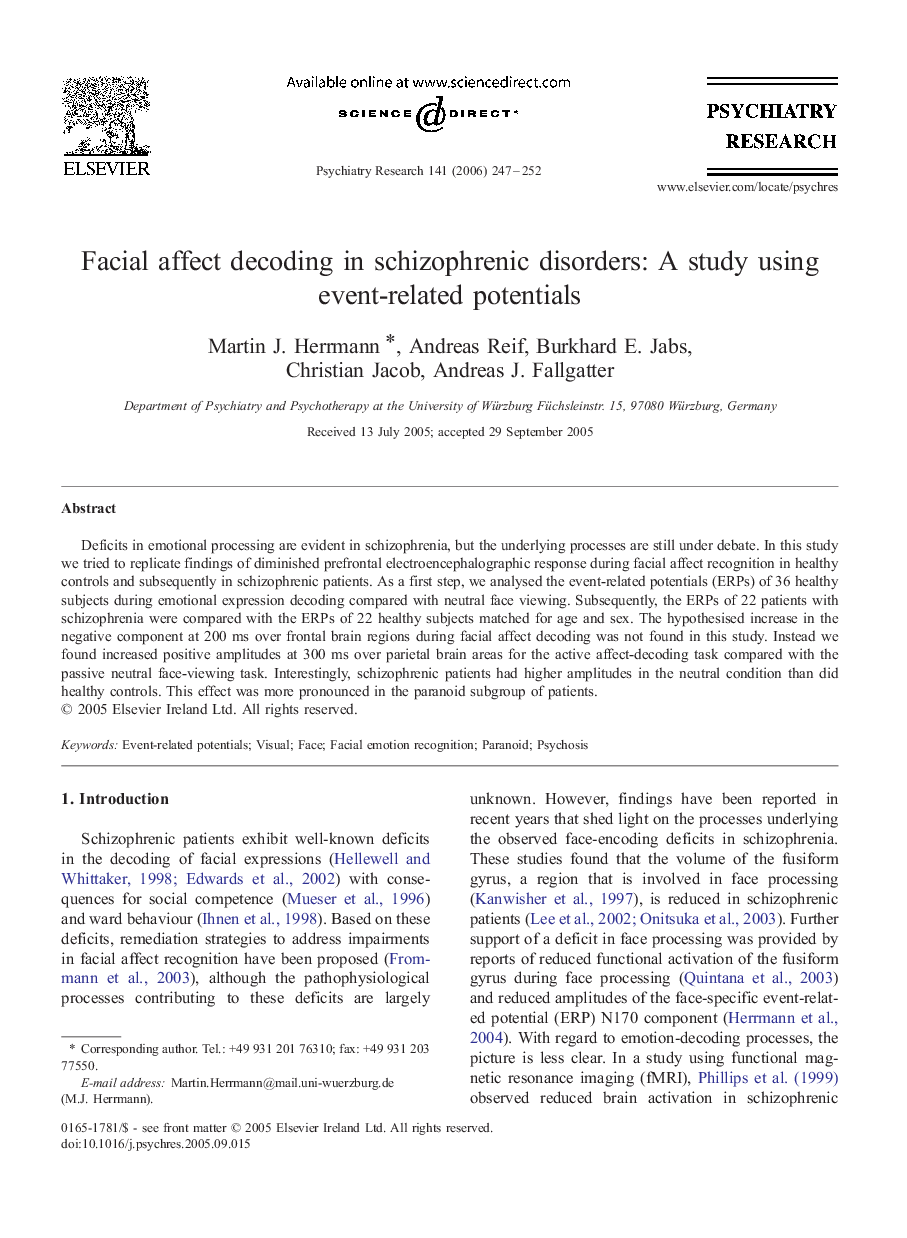| Article ID | Journal | Published Year | Pages | File Type |
|---|---|---|---|---|
| 332045 | Psychiatry Research | 2006 | 6 Pages |
Deficits in emotional processing are evident in schizophrenia, but the underlying processes are still under debate. In this study we tried to replicate findings of diminished prefrontal electroencephalographic response during facial affect recognition in healthy controls and subsequently in schizophrenic patients. As a first step, we analysed the event-related potentials (ERPs) of 36 healthy subjects during emotional expression decoding compared with neutral face viewing. Subsequently, the ERPs of 22 patients with schizophrenia were compared with the ERPs of 22 healthy subjects matched for age and sex. The hypothesised increase in the negative component at 200 ms over frontal brain regions during facial affect decoding was not found in this study. Instead we found increased positive amplitudes at 300 ms over parietal brain areas for the active affect-decoding task compared with the passive neutral face-viewing task. Interestingly, schizophrenic patients had higher amplitudes in the neutral condition than did healthy controls. This effect was more pronounced in the paranoid subgroup of patients.
